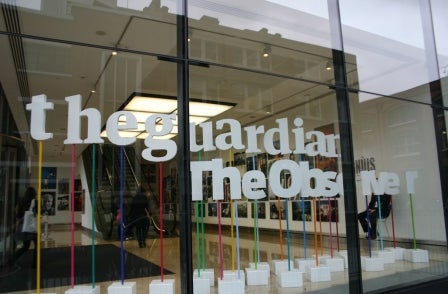
Trebles all round at Guardian News and Media after the news yesterday it is expected to net £600m from the sale of its 50.1 per cent share in Trader Media Group.
Well, up to a point.
It certainly sticks two fingers up to the Guardian-haters who take glee in the paper's huge annual losses and like to predict its imminent demise. But Guardian journalists should probably not expect any fresh generosity when it comes to wage claims or expenses sheets.
As of April last year, GMG had a cash and investments pot of £253.7m. Together with the new £600m, that leaves GMG with around £850m in its piggybank (assuming some way can be found of keeping the taxman at bay – see below).
Such a pot would allow The Guardian, Observer and Guardian.co.uk to carry on losing money at the current rate (of £30.9m a year) for the next 27 years.
But that isn't good enough for the Scott Trust which owns GMG. Its remit is to "protect the financial and editorial independence of The Guardian in perpetuity".
The Guardian still has a 32.9 per cent stake in highly profitable business and events business Top Right Group, which it bought with Apax for £1bn in 2008 when it was called Emap.
Top Right had revenue last year of £251.7m and operating profit of £70.3m but it still has debt to pay down of £359m from that high 2008 purchase price. Assuming the debt can be paid off in the next few years, GMG should be in line for another cash injection which could push its nest egg around the £1bn mark when Top Right is sold.
Meanwhile, GMG chief executive Andrew Miller is mid way through a five-year plan to cut costs and put the business on a sustainable footing. This has already seen Guardian News and Media reduce losses from £44.2m in 2011/2012 to £30.9m in the year to April 2013.
I understand GMG is aiming for ongoing losses of around £20m a year. Five per cent annual return (which I am told is realistic) on £1bn would give them income of £50m a year, enough to cover the Guardian's losses and keep on top of inflation. Just looking at the current £850m could give GMG investment income of around £40m a year.
.jpg)
In two years' time Guardian editor and GMG board member Alan Rusbridger will be 62 and will have notched up 20 years as editor. Andrew Miller's five year-plan financial turnaround will be nearing its conclusion.
It would be quite a legacy for Rusbridger to leave The Guardian with a financial plan in place which could safeguard its journalism forever.
My guess is that the creation of a foundation or charitable trust to underwrite sustainable Guardian losses is where GMG is heading. Though there are questions over whether such a foundation could achieve charity status (so far the Bureau of Investigative Journalism has tried and failed to become registered as a charity).
So journalists shouldn't expect GMG to start sloshing that £600m around with abandon. More belt-tightening lies ahead with the goal of ensuring that a journalistic tradition which started nearly 200 years ago with the foundation of the Manchester Guardian can be handed down safely to the next generation.
Note: No-one at GMG was available to comment.
Email pged@pressgazette.co.uk to point out mistakes, provide story tips or send in a letter for publication on our "Letters Page" blog
